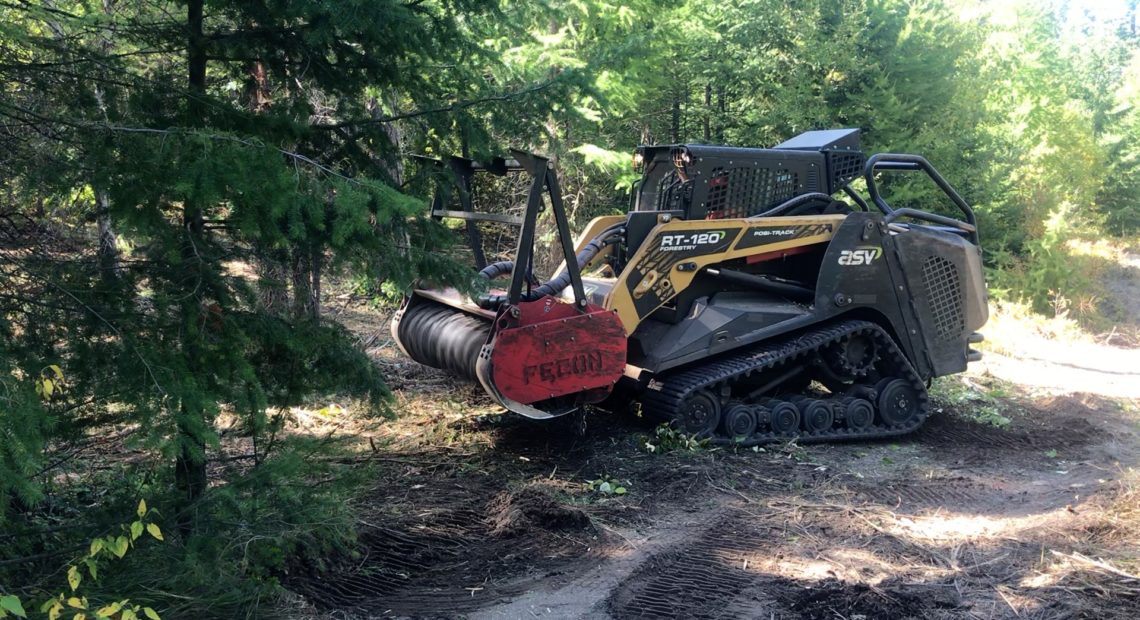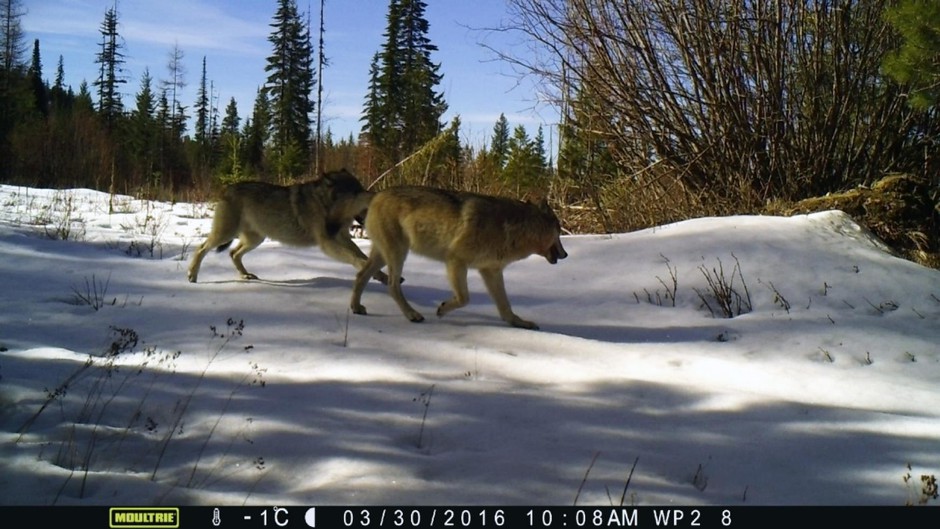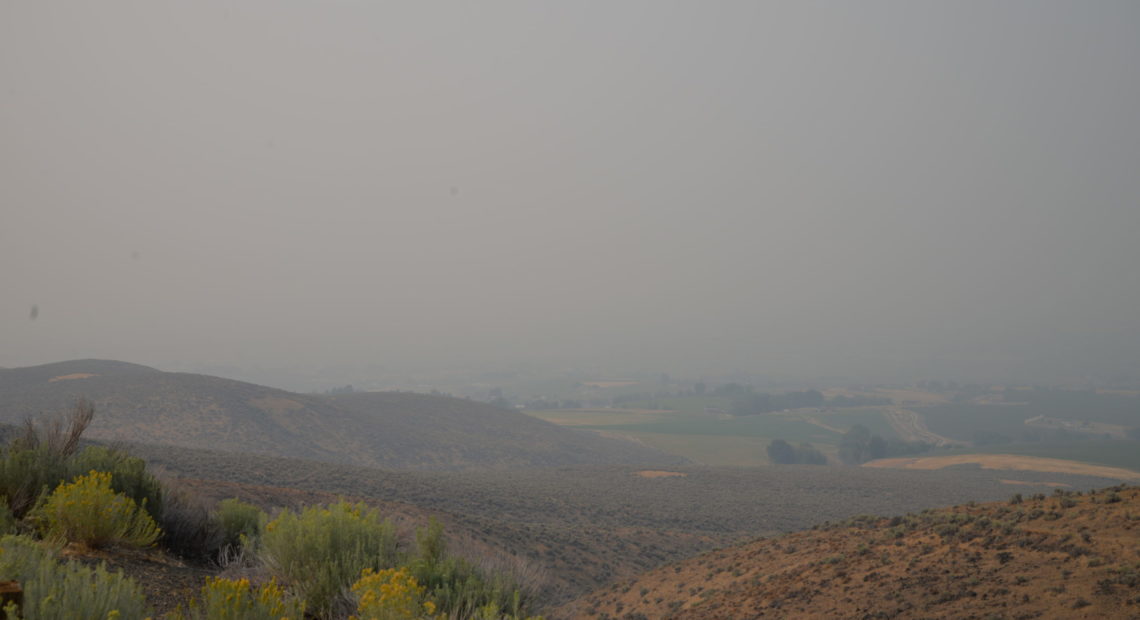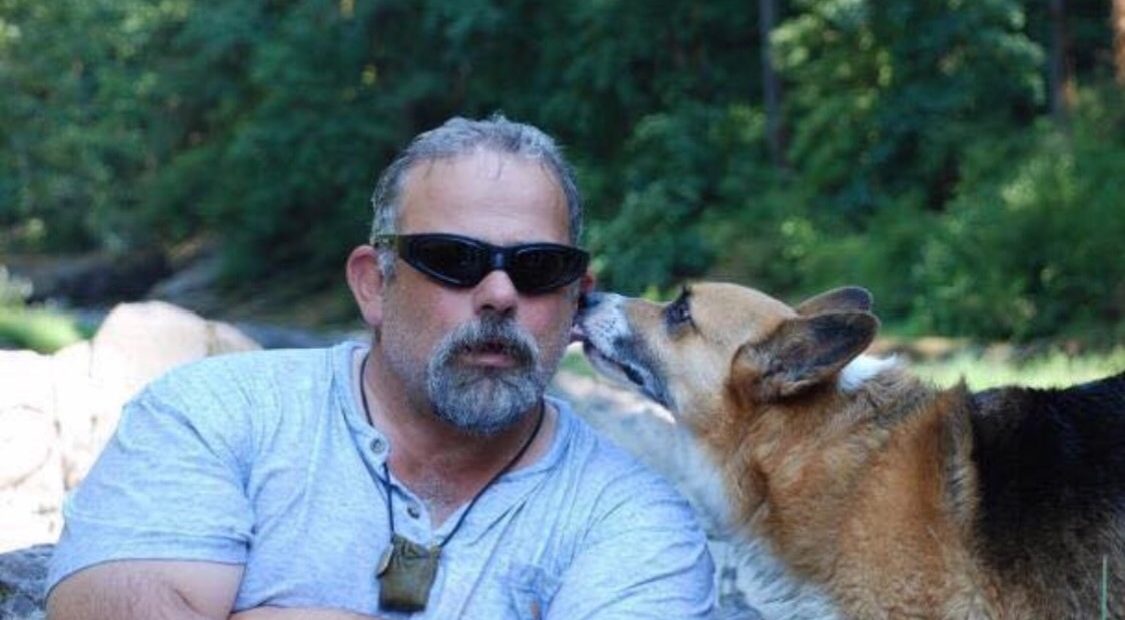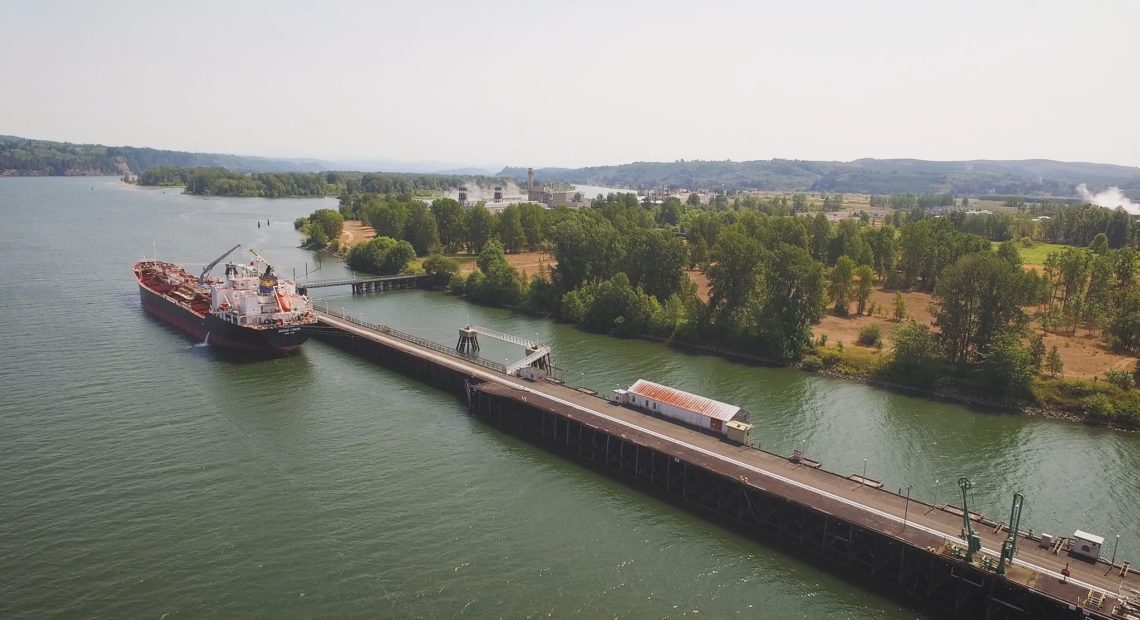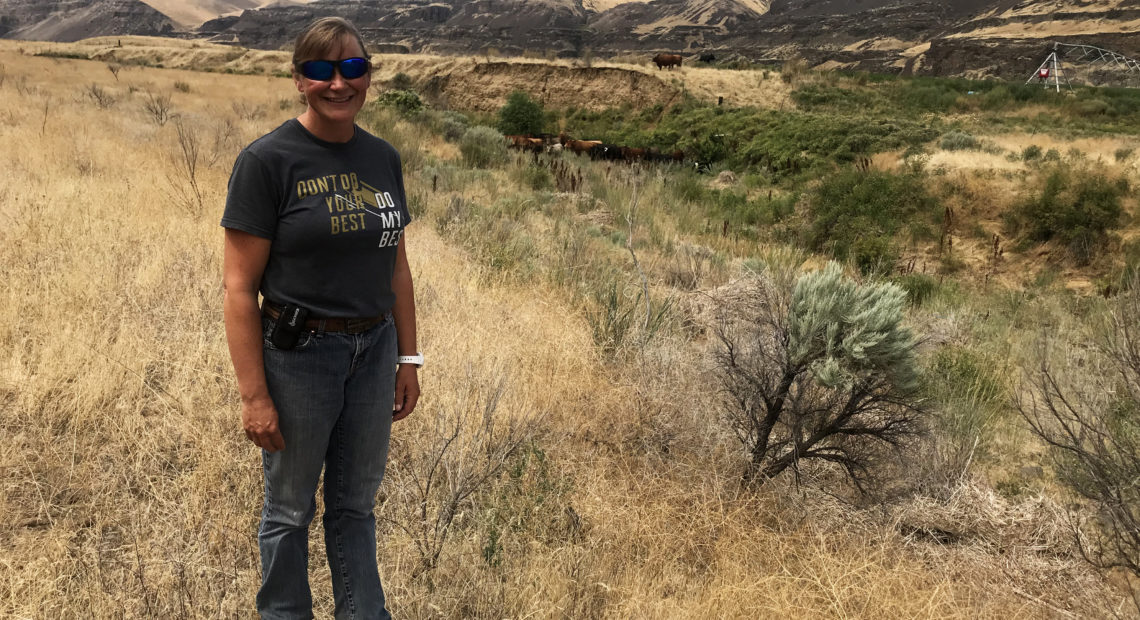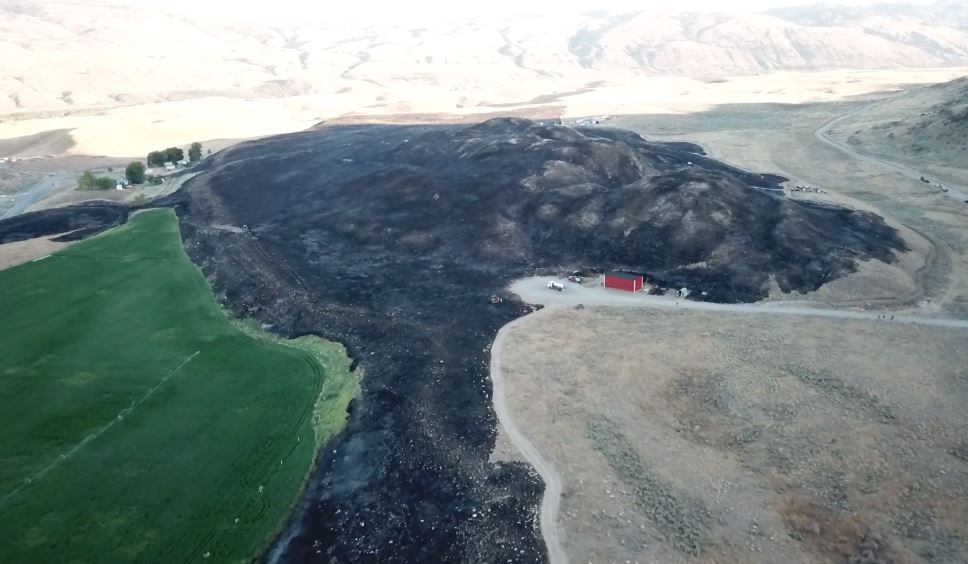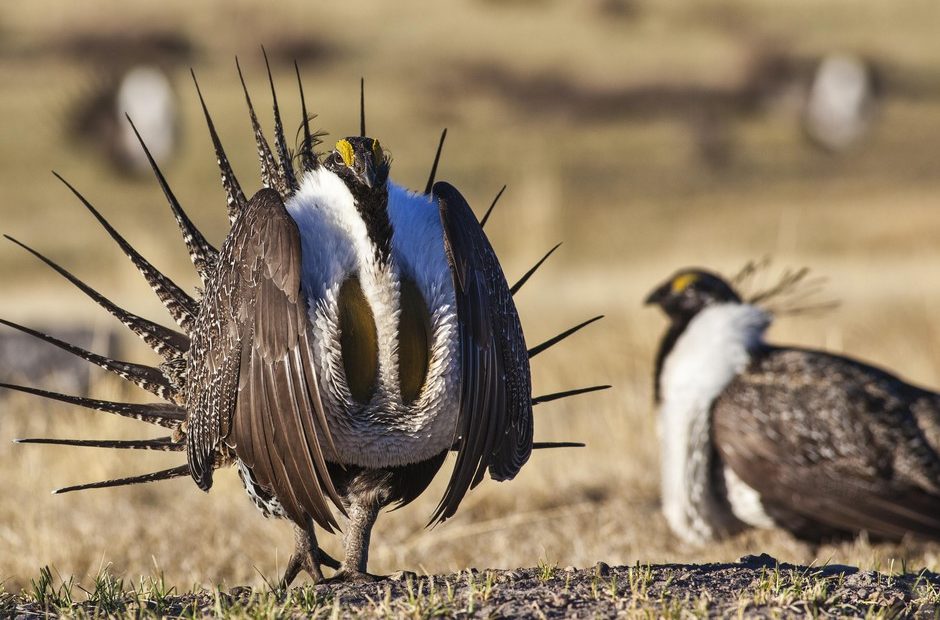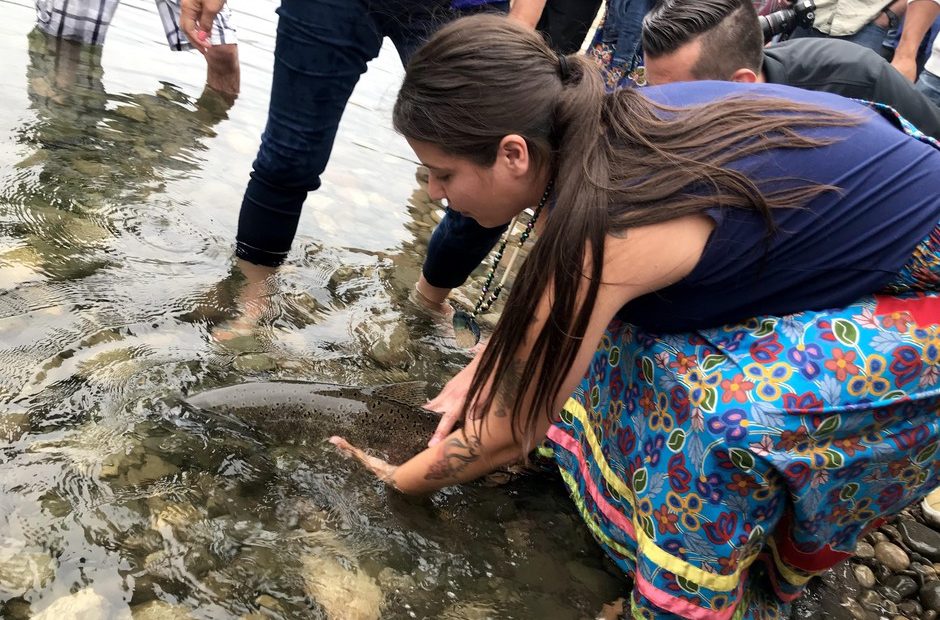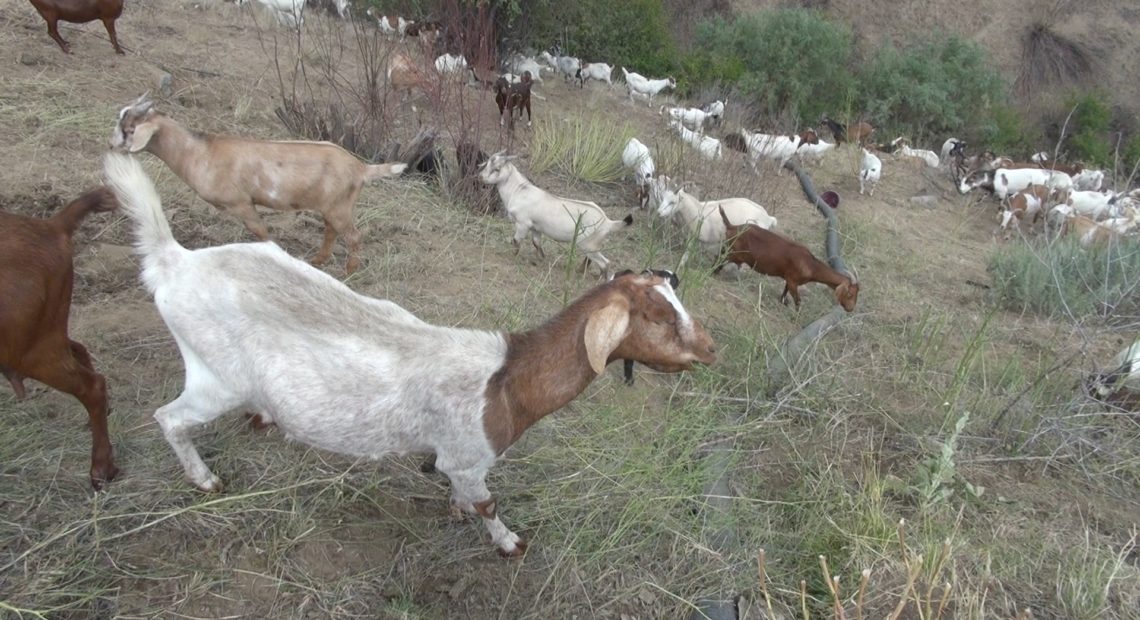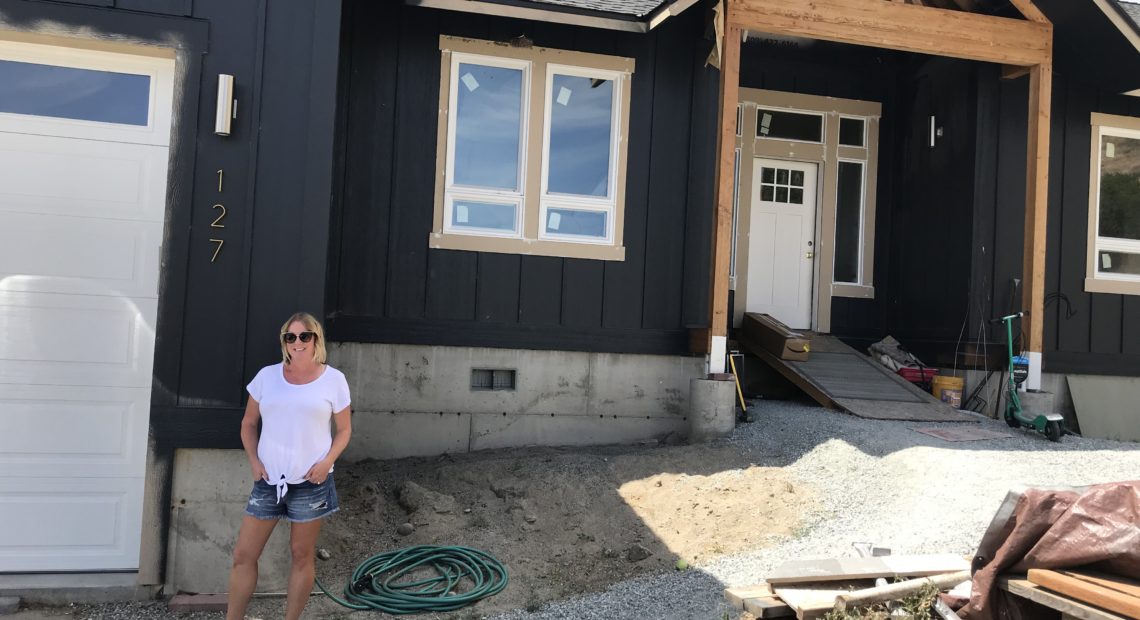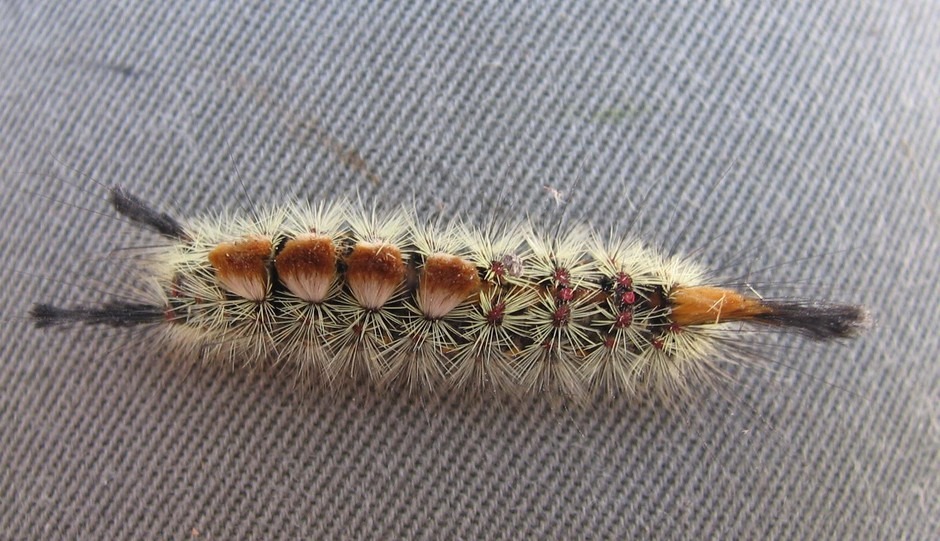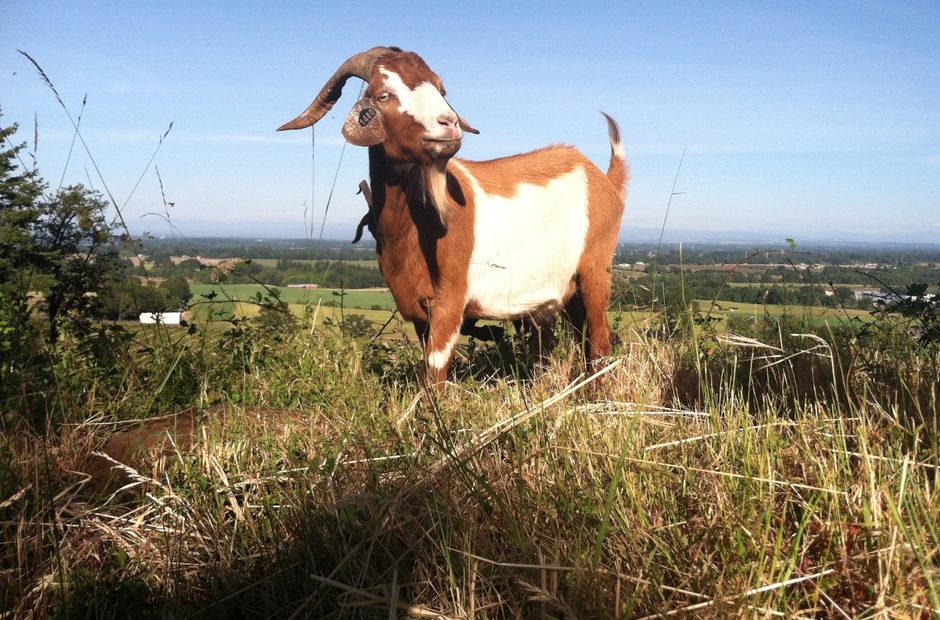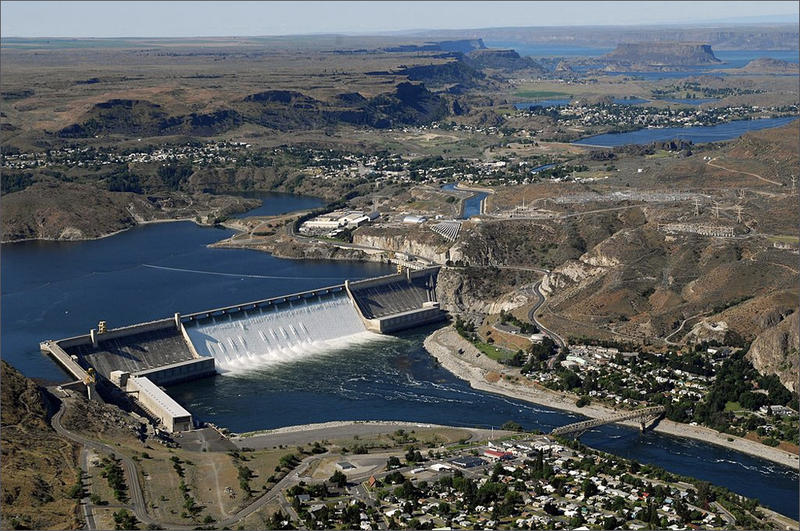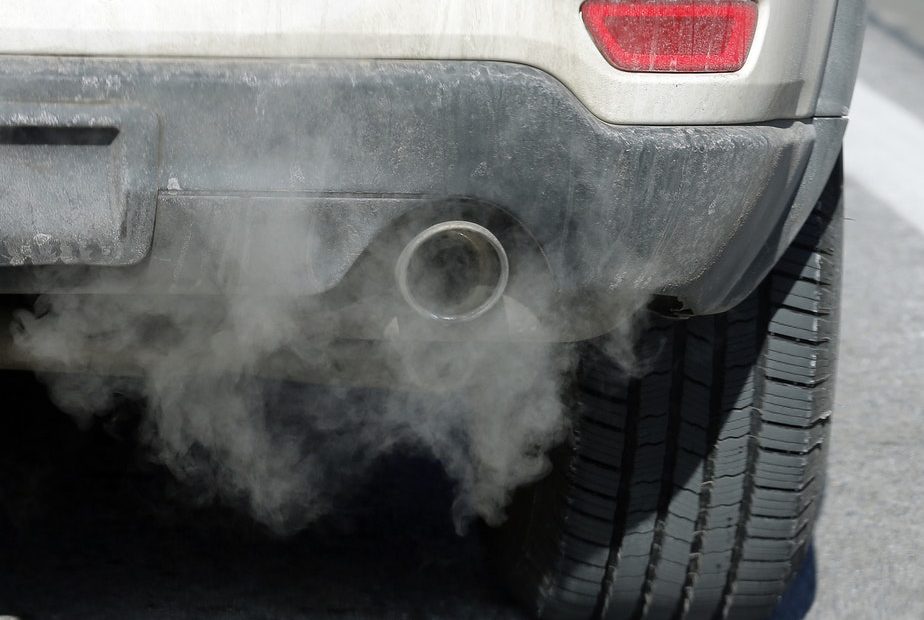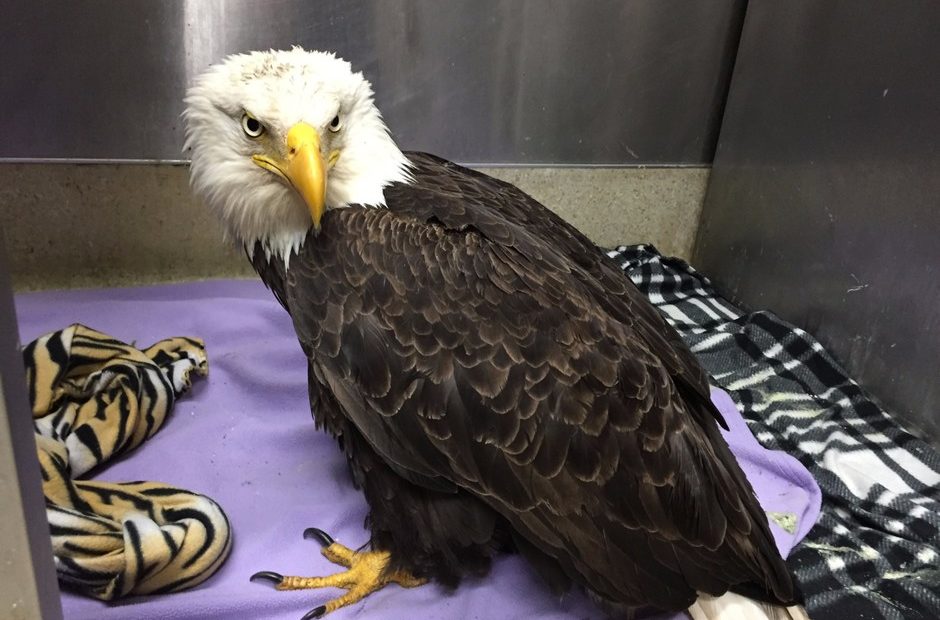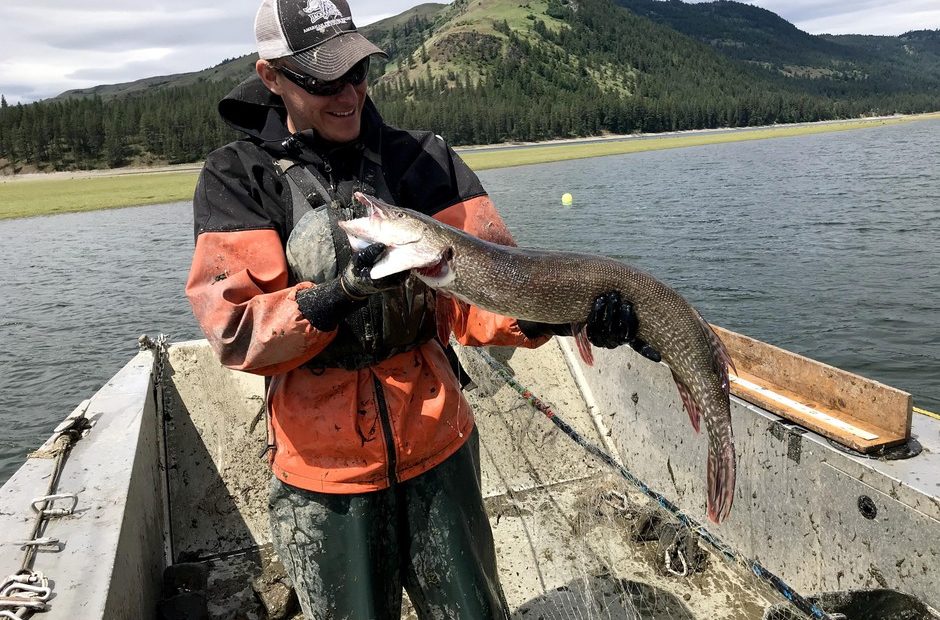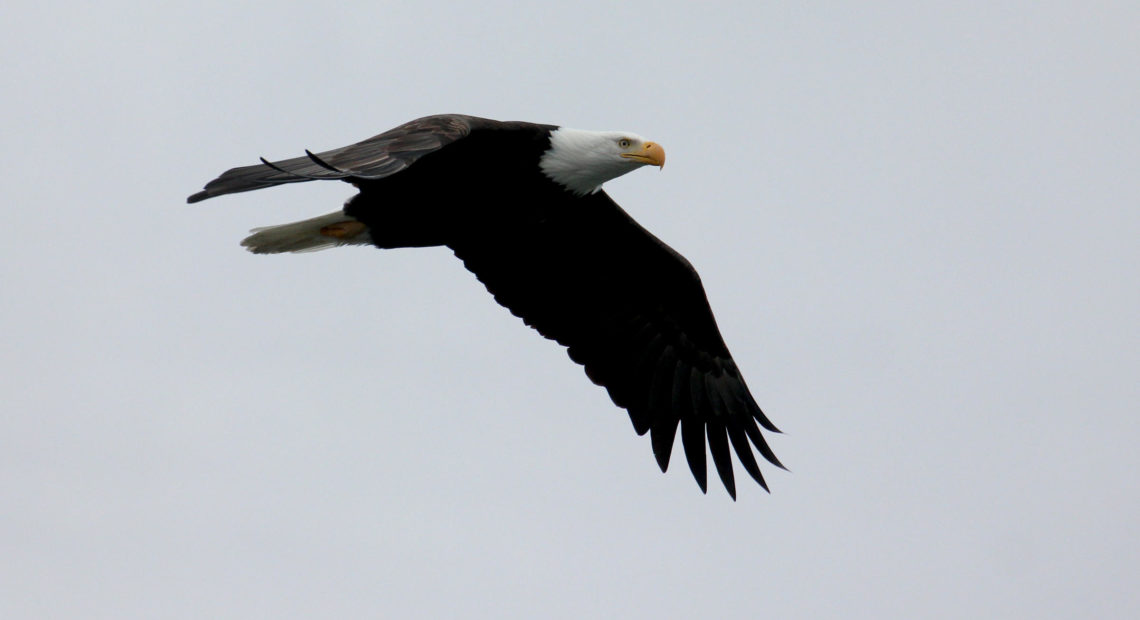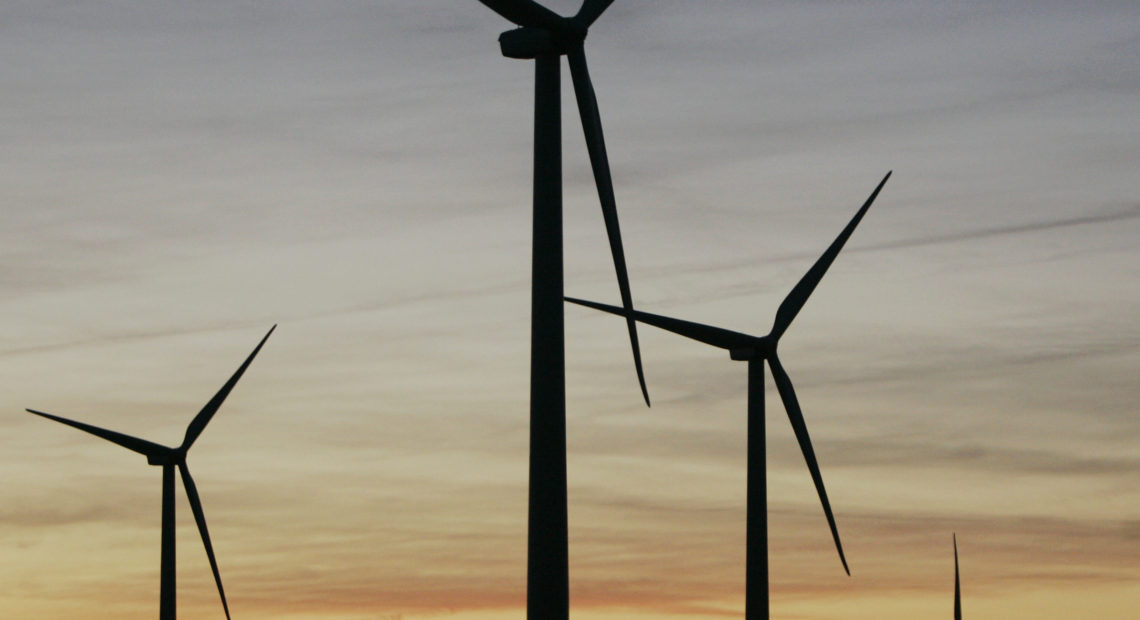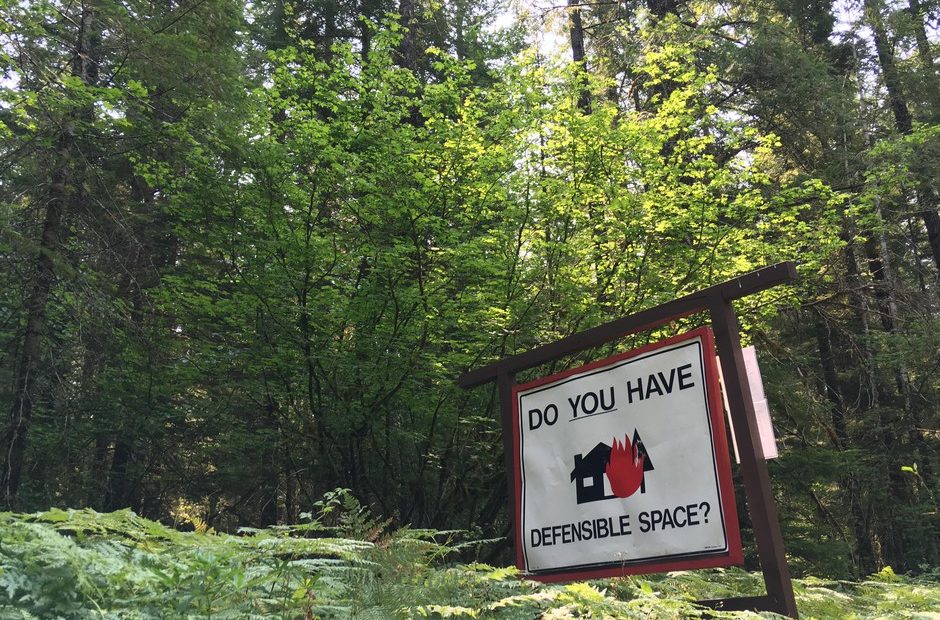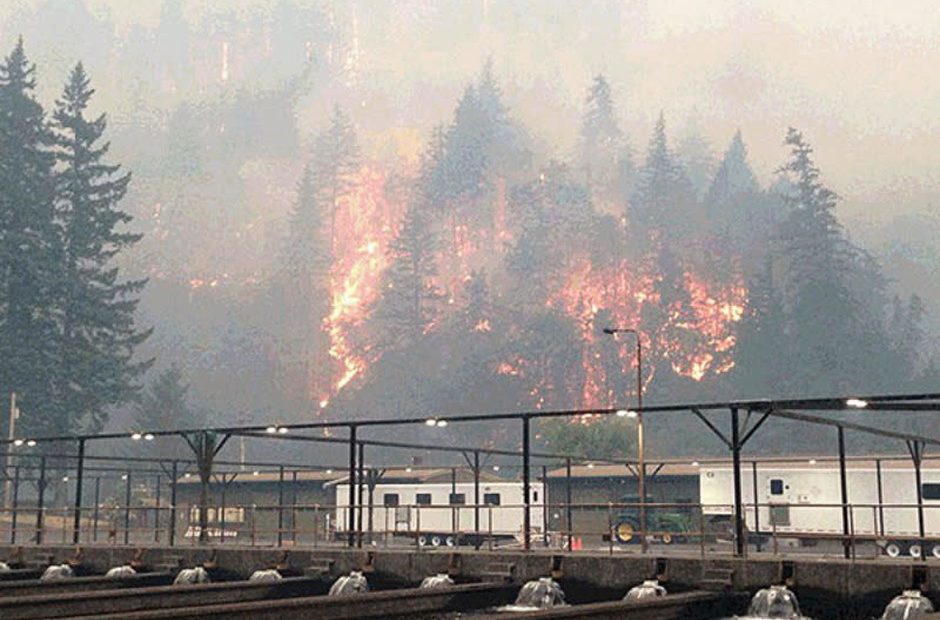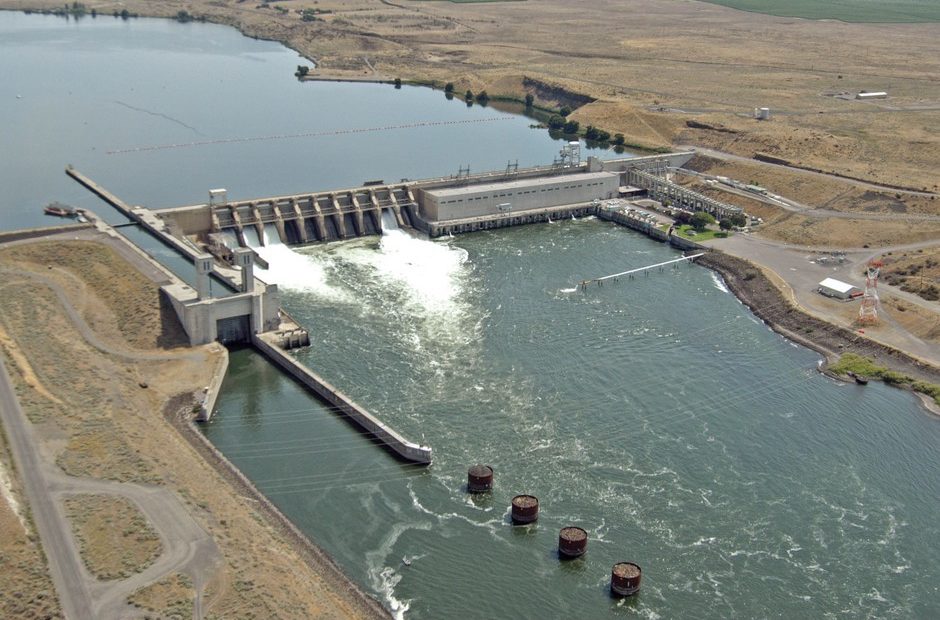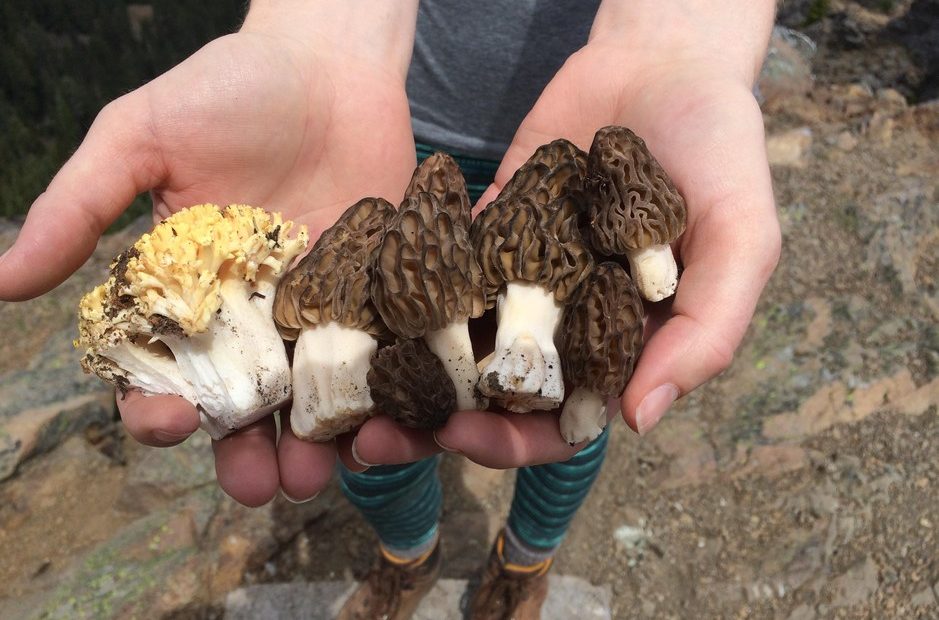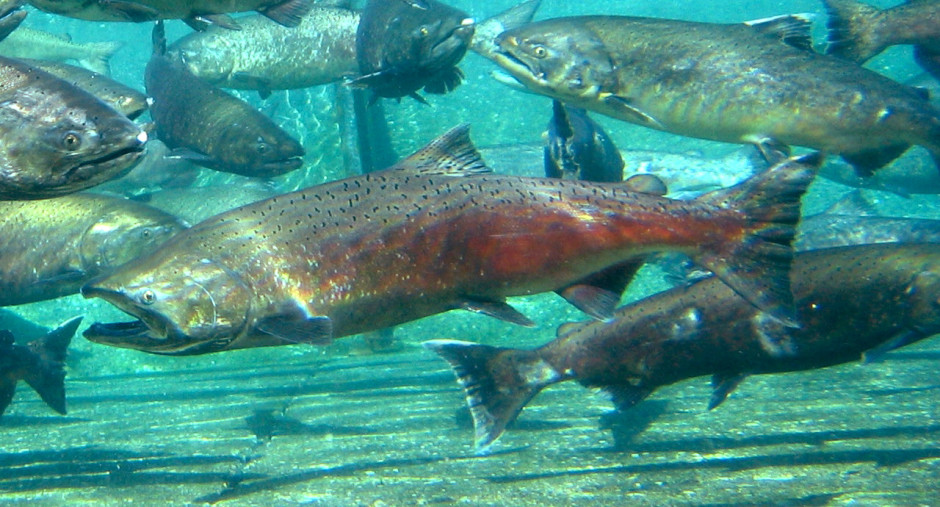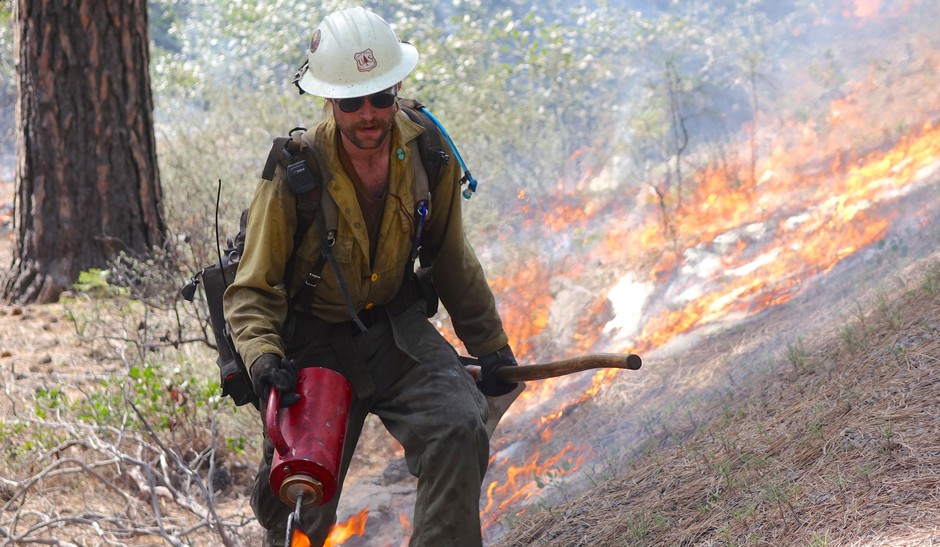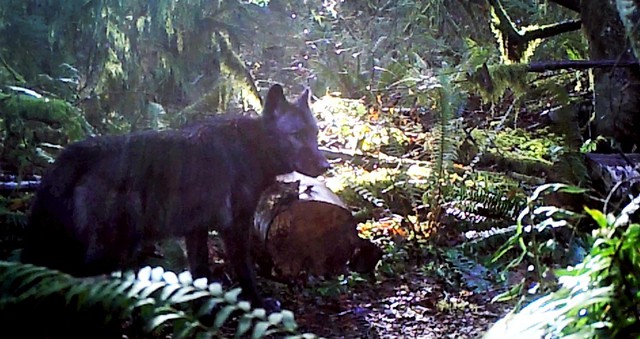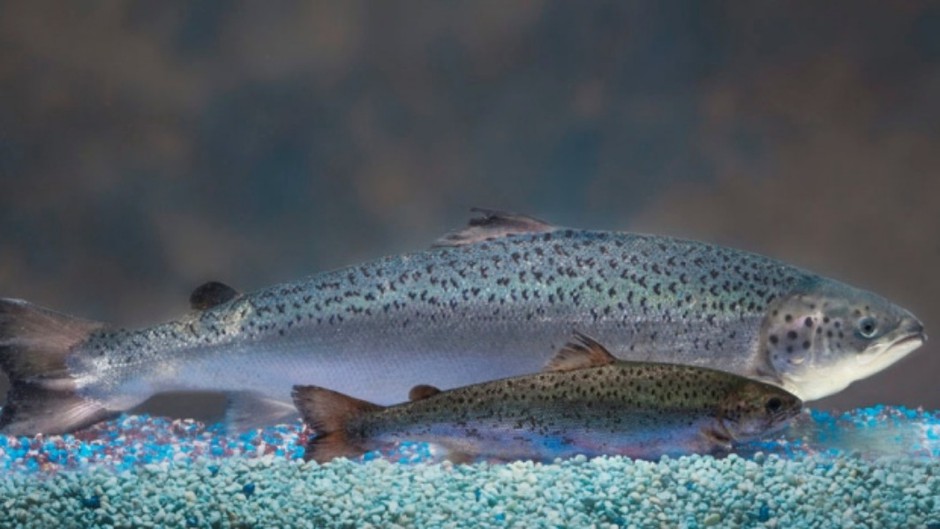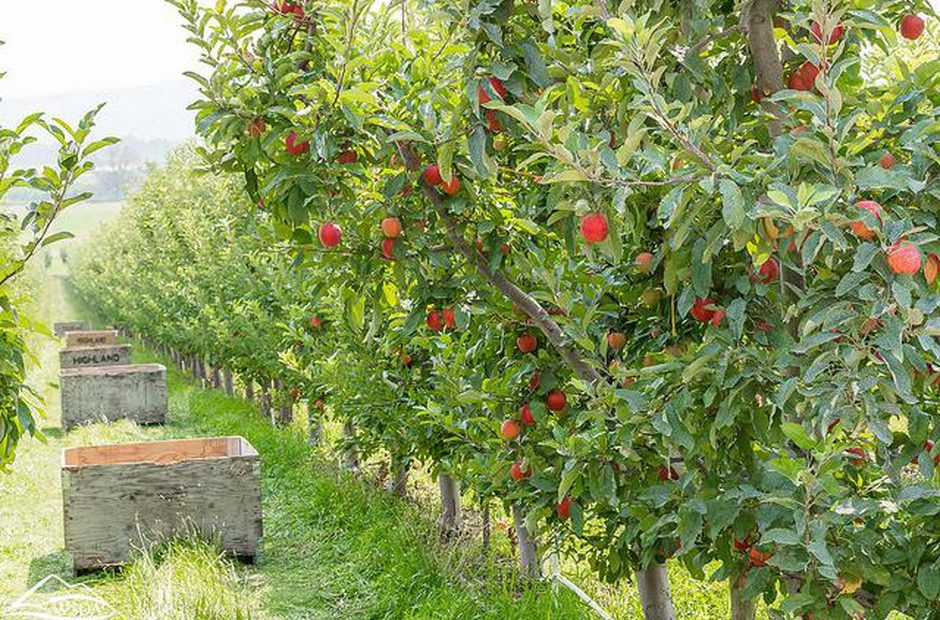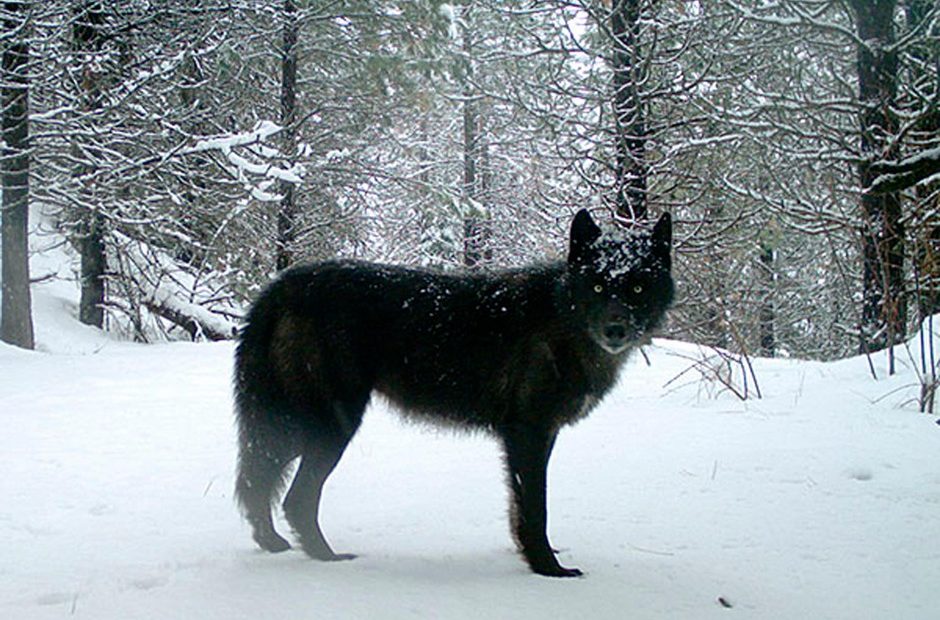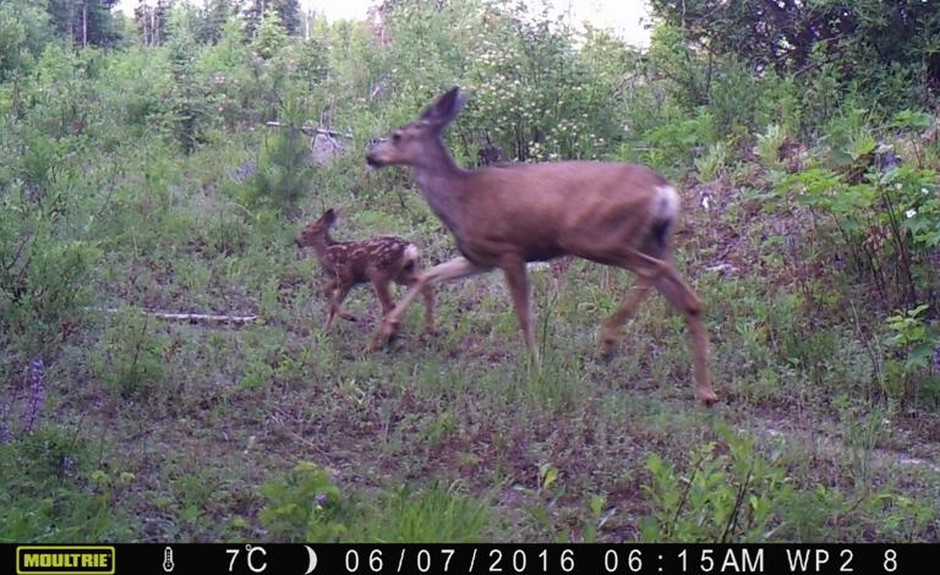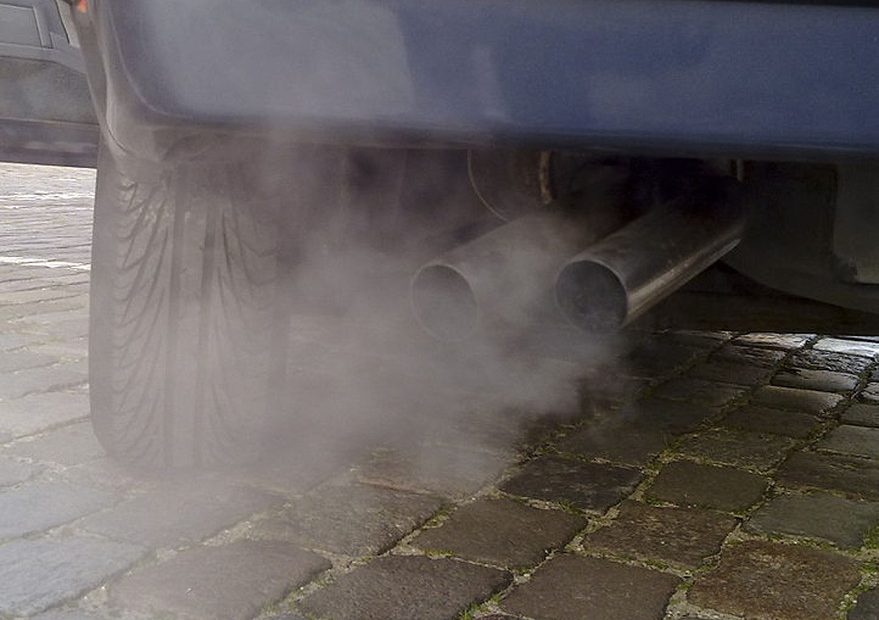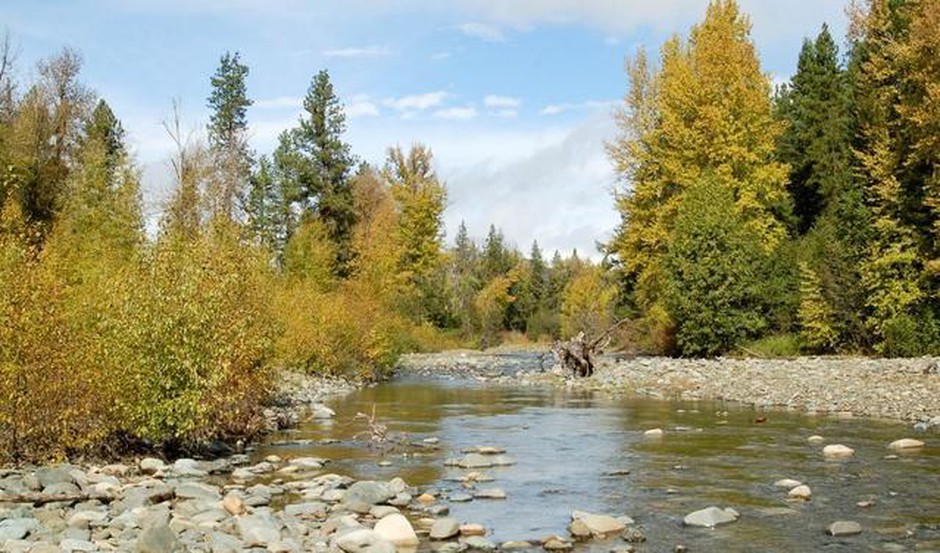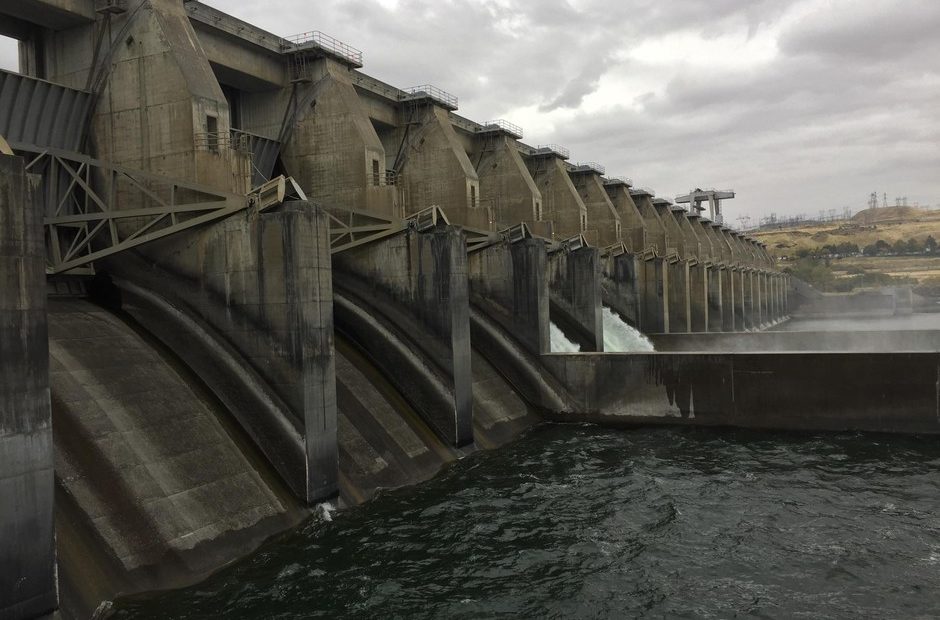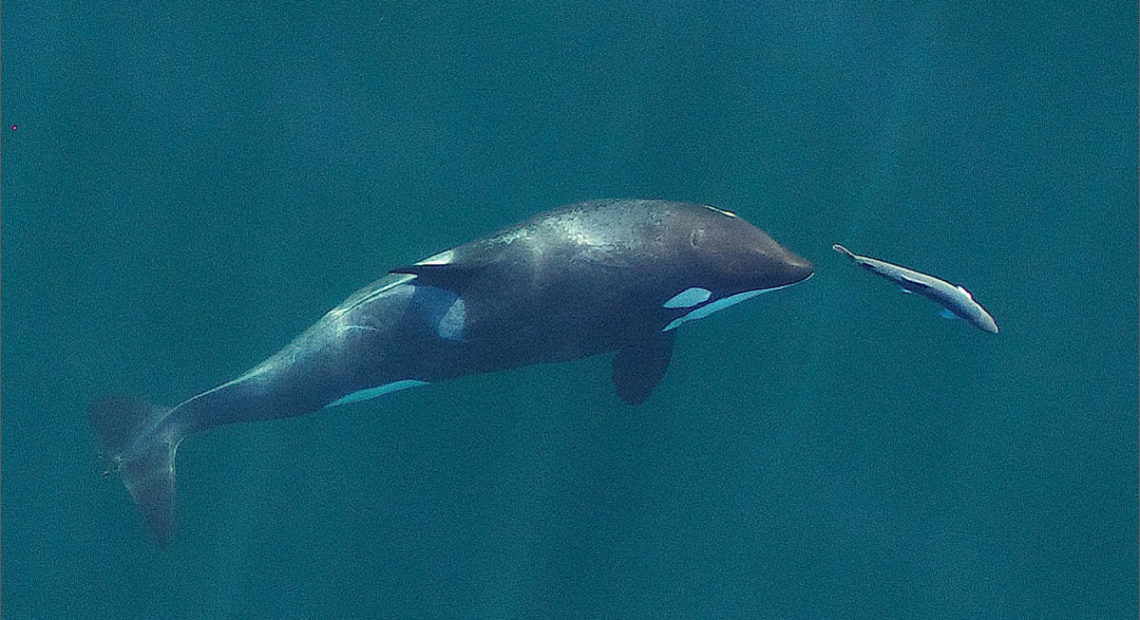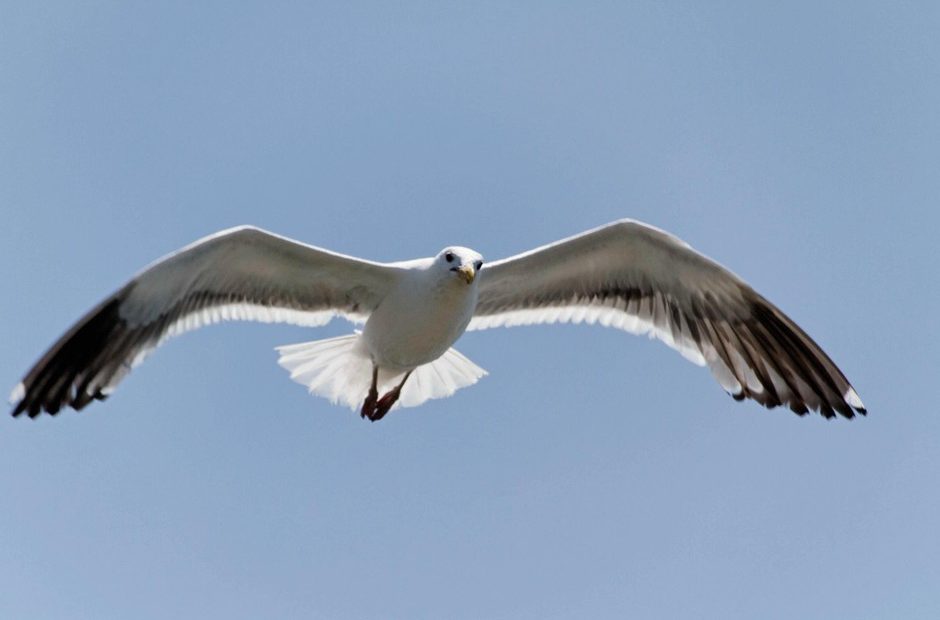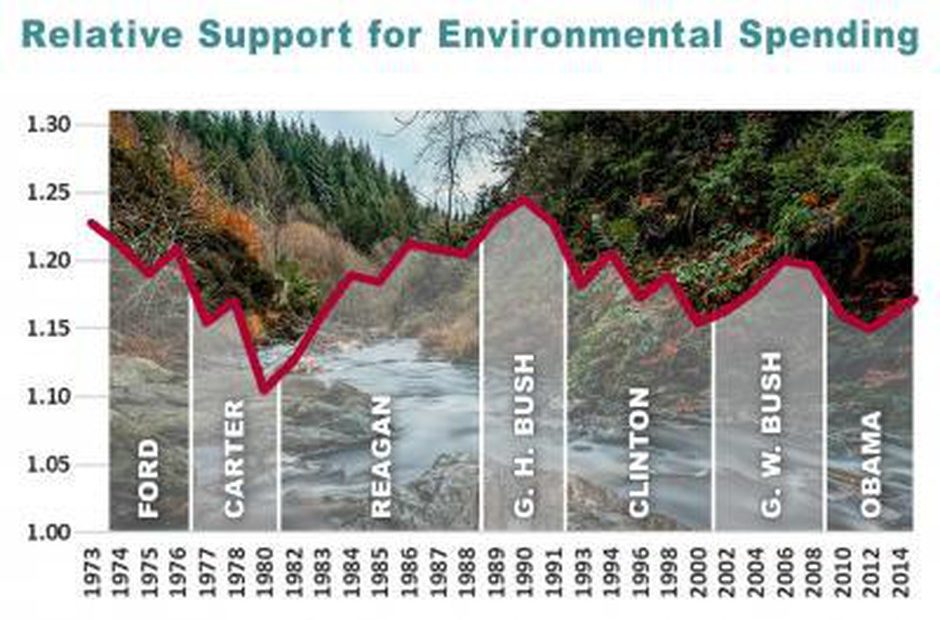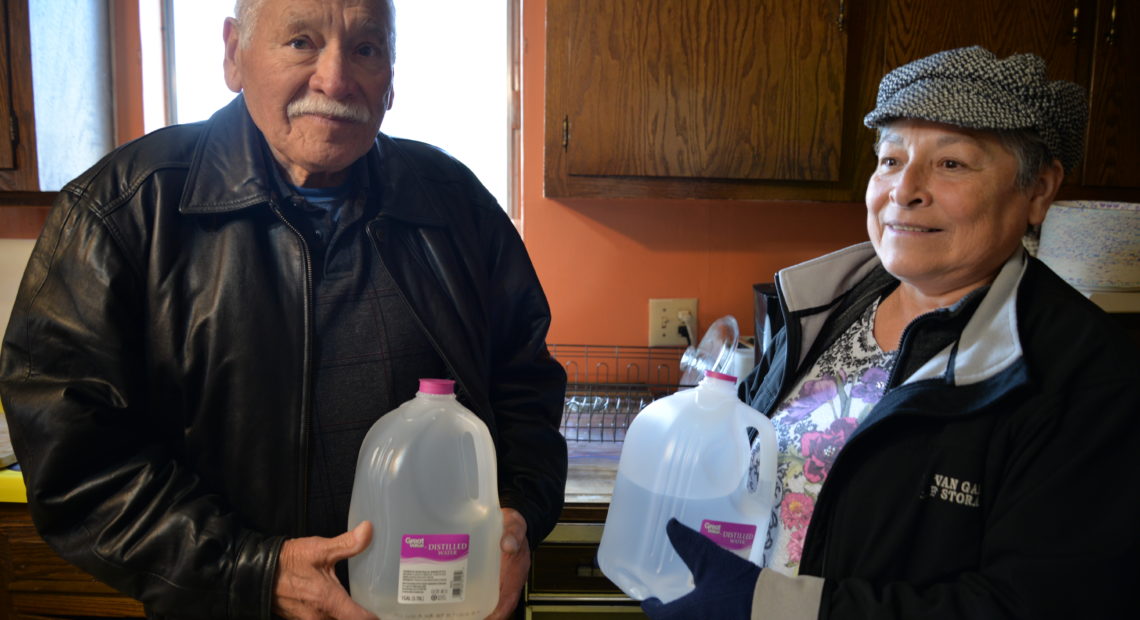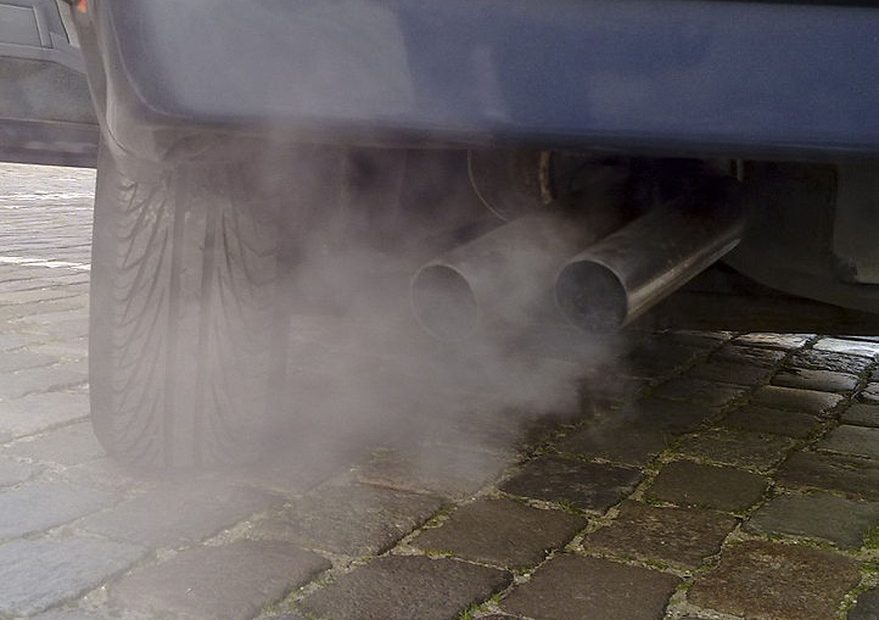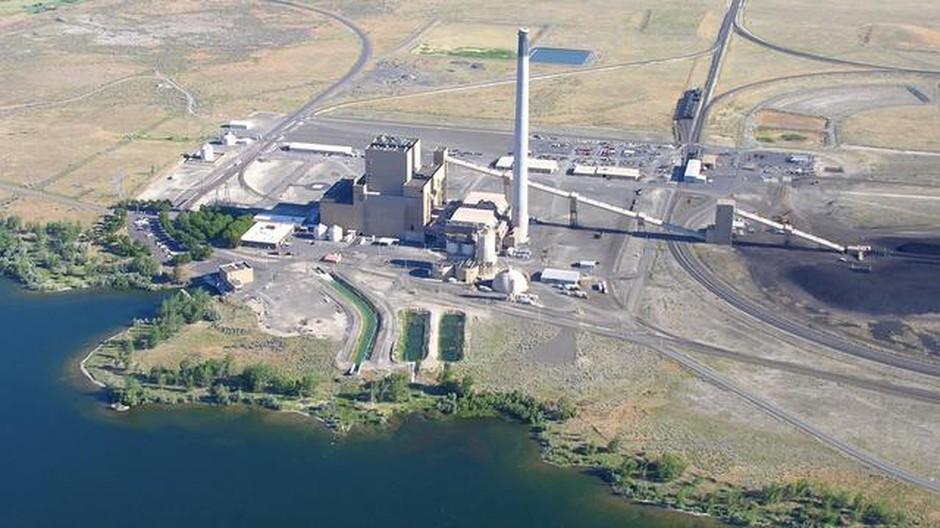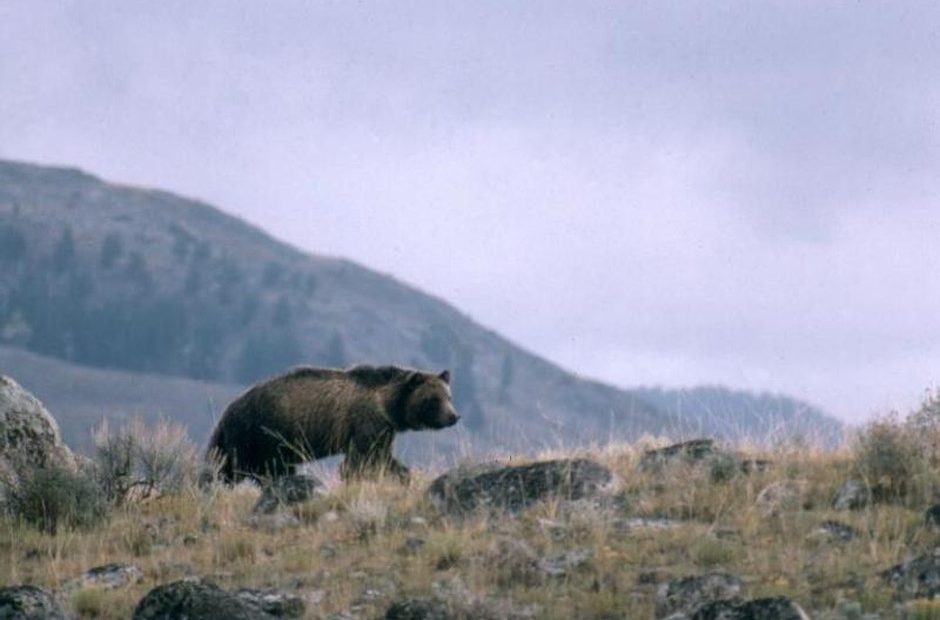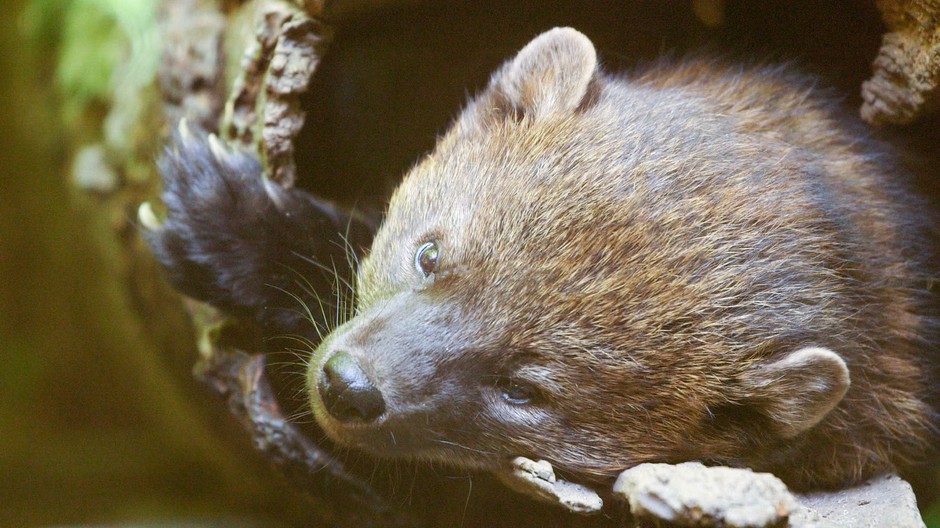Connecting different projects – like these large-scale fuels management ones – with efforts by homeowners down below helps make the landscape more resilient. It’s part of a larger effort to help central Washington avoid the fate of towns like Paradise, California, which was devastated by the Camp Fire in 2018. Read More
In a letter to Washington Department of Fish and Wildlife Director Kelly Susewind, Inslee asked that the state increase efforts to change guidelines that dictate when a wolf can be lethally removed.Read More
Airlines like Alaska, United and Delta are looking into biofuel production. It’s a trend experts say will keep growing. The Northwest is playing a big role in several experiments airlines are helping fund.Read More
Climate change is causing people in Washington to spend billions of dollars in healthcare costs. That’s according to a new study that looked at how hospital visits and early deaths during a recent wildfire season.Read More
Christian Johnson was severely burned while helping put out a Labor Day weekend brush is still in critical condition. Doctors said the recovery process will take several months.Read More
A port on the Lower Columbia River has approved a controversial lease for a biofuels project. The county says it will bring jobs to the area. Some environmental groups are concerned about previous deals gone bad involving the project’s backers.Read More
There are no agencies assigned to fight fires on certain stretches of Washington rangeland. Ranchers want to form their own firefighting teams – something already happening in Oregon and Idaho.Read More
A Washington firefighter was badly burned over the Labor Day weekend while fighting a small brush fire in Okanogan County. He’s currently in a medically induced coma at a Seattle hospital.Read More
Moving imperiled sage grouse from one spot to another can be hard on the birds. But research from Washington State University suggests that after a restless adjustment period, the birds eventually get used to their new homes.Read More
Threats of violence have caused Washington officials to cancel a series of in-person informational wolf management meetings. In a news release, state Fish and Wildlife director Kelly Susewind said the tensions this summer were “on both sides of the issue.”Read More
Salmon are now swimming in the upper Columbia River for the first time in decades. For regional Native tribes, Friday’s ceremonial fish release is a big step toward catching fish in traditional waters. Cheers erupted from the crowd as the first salmon was released since 1955 into the Columbia River above Chief Joseph Dam.Read More
A fire district around Wenatchee has come up with a new way to make wildland fires less severe. Chelan County Fire District 1 is ditching the hand tools and machinery that firefighters traditionally use to thin overgrown brush. Instead, they’re turning to a more natural approach to thin out fuels around the Broadview neighborhood that burned in the 2015 Sleepy Hollow fire.Read More
Five years later, the Carlton Complex is still the single largest fire in Washington state’s history. By the end of summer, the Okanogan Long Term Recovery Group will have rebuilt 39 homes. The group’s contractors are putting the finishing touches on the final two homes now. They’ve held a ribbon cutting at nearly each spot.Read More
The tussock moth caterpillar is quite the sight, if you’ve ever seen one hanging around a Douglas fir tree. These hungry caterpillars can eat Douglas fir and grand fir needles, first starting with the new needles that grow as the caterpillars hatch. Later, munching on older needles high in the treetops.Read More
Four years ago, the Sleepy Hollow Fire burned to the edge of Wenatchee. Flames rushed through, consuming brush and cheatgrass and quickly destroying 28 homes and three businesses. Now, with the help of a federal grant, firefighters are getting rid of some of those grasses to better protect homes.Read More
A team of researchers presented their findings on Tuesday to the Northwest Power and Conservation Council. In short, they said, salmon can survive in the upper reaches of the Columbia Basin, and fish passage needs to happen above Chief Joseph and Grand Coulee dams.Read More
Plans for a low carbon fuel standard in Washington didn’t work out this legislative session. Now, advocates are figuring out what to do next to reduce gasoline and diesel emissions in the Evergreen State.Read More
When a wind turbine blade strikes a bird, the bird usually doesn’t survive. Now, researchers are working on new ways to keep birds — particularly eagles – away from wind farms using audio and visual signals.Read More
The fight to save Columbia River salmon could hinge on a major battle taking place in the basin’s biggest reservoir. It pits biologists against a fish: The invasive northern pike.Read More
A proposed energy storage project in the Columbia Basin is drawing concern from bird advocates. They’re worried new water ponds could attract waterfowl and eagles that could then be struck by nearby wind turbines.Read More
New technology could help a wind farm in Eastern Oregon work more efficiently. Officials are voting Friday on the updates to the wind farm. Wind turbines are expected to last about 20 years. Oregon’s Stateline Wind Farm is getting up there – construction started way back in 2001. That’s why the farm’s owners are asking to update part of the facility.Read More
In the Northwest, some of the oldest wind farms were built in the early 2000s. When the turbines get too old, wind farm owners can either upgrade to newer technology or shut down the farms. Those processes are called re-powering or decommissioning, respectively. How do you recycle wind technology?Read More
State and federal officials signed an agreement Wednesday to protect Washington’s forests and wildlife. The plan would combine resources to fight destructive wildfires, threats to forest health and challenges faced by salmon and orcas.Read More
More people in the Northwest are worried about wildfires than they were four years ago. A new poll has found people in Washington are now five times more likely to say they’ll feel the effects of wildfires. In Oregon, people are three times more likely to worry about wildfires.Read More
Tucked into Washington’s $52.4 billion operating budget passed Sunday night by the Legislature is controversial funding for a “stakeholder group” tasked with looking into what would happen should the four Lower Snake River dams be removed or altered.Read More
Springtime means it’s morel mushroom harvesting season. Depending on where fires burned last summer, mushroom collecting could take you to different spots across the Northwest.Read More
What to do with the four Lower Snake River dams and how to best protect imperiled salmon have been a tough questions for decades. They were the focus at a conference on salmon Tuesday at Boise State University’s Andrus Center for Public Policy.Read More
Land managers are using prescribed burns -- also called "good fire" -- and thinning to restore forests and reduce the extra wood, sticks and needles that fuel megafires. Different land managers look for certain things when they’re selecting where prescribed fires will work best.Read More
There’s a new wolf pack on the western side of Washington’s Cascade Mountains. Wildlife officials say it’s the first time they’ve documented a pack there since wolves were wiped out decades ago.Read More
Washington lawmakers are developing a low carbon fuels standard. If signed into law, new rules would limit the amount of carbon coming out of car and truck tailpipes. Backers say it’s necessary to combat climate change. Critics say it will increase the price at the pump.Read More
Deep in Oregon’s sagebrush country, there’s one county with an abundance of ravens. Biologists say those ravens like to eat sage grouse eggs, and they’ve come up with plans to take care of the raven problem. That’s got bird advocates questioning whether killing one bird for the sake of another is the right move.Read More
The Trump administration is lifting restrictions meant to protect greater sage grouse across seven western states. In Oregon grazing restrictions are being removed in 13 locations that provide habitat for the imperiled birds.Read More
Genetically engineered salmon are one step closer to winding up on store shelves, after the U.S. Food and Drug Administration lifted an import ban. It’s a move that’s concerning to tribes, food groups and environmentalists.Read More
One of the country’s most widely-used herbicides could be linked to an increase in early deaths from Parkinson’s disease for people who live near farmlands, according to new research in Washington.Read More
President Donald Trump’s acting interior secretary announced plans Wednesday to lift protections for gray wolves in the Lower 48. The move will likely spur controversy in the Northwest.Read More
As wolves return to the Northwest, deer have taken notice. Researchers found deer in Washington change how they react when wolves are near – and that could eventually change how hunters hunt.Read More
Washington could soon join the ranks of its West Coast neighbors, requiring fuels at the pump that produce less carbon pollution. A low-carbon fuels bill passed its first big test Monday, moving out of the House Appropriations Committee.Read More
Eastern Oregon may soon be home to a next-generation renewable energy project. Portland General Electric is making plans to build the country’s first large-scale energy facility that combines wind turbines, solar panels and battery storage.Read More
Before you wrap up that date with your special someone, there’s something else conservationists hope you wrap up as well … for the love of wildlife. They say preventing unplanned pregnancies could actually help save endangered species.Read More
The U.S. Senate Tuesday passed a sweeping public lands bill, with measures meant to protect lands across the country. It’s expected to have a big impact on Washington’s lands, rivers and more.Read More
Washington regulators want water at dams on the Columbia and Snake rivers to meet state standards.Read More
In an effort to help imperiled salmon, Washington officials are proposing more water be spilled at dams during fish migration. The hope is that this would also increase the amount of food for orcas in Puget Sound.Read More
There are a lot of predators known to eat imperiled salmon, from sea lions to double-crested cormorants. For a long time, biologists thought gulls weren’t a big part of the problem. Now, they say that was a miscalculation.Read More
If you think environmental policies get more support under Democratic presidents, think again. A new study finds the opposite might actually be true.Read More
More people than expected are drinking water that could be harmful to their health. That’s according to a new study that looked at a water contaminate that’s been an issue in one of the Northwest’s most productive farming regions.Read More
The gas and diesel you use to fuel your car are some of the biggest sources of greenhouse gasses and air pollution in Washington. Some lawmakers want to change that.Read More
A new federal report shows the amount of coal burned for power has fallen to its lowest point in almost 40 years. That’s because natural gas is cheap, renewable energy is growing and coal plants are shutting down.Read More
A controversial plan to reintroduce grizzly bears to Washington’s North Cascades will not be finished by the end of the year. Federal officials had pushed to bring grizzlies back to wilder parts of the state. Those efforts have stalled.Read More
The Trump administration wants to reduce restrictions for greater sage grouse across seven states. For the imperiled birds in Oregon, that means fewer grazing restrictions in some specific habitat. The decision has rankled conservation and hunting groups and been supported by ranchers.Read More
Washington’s North Cascades will soon see the return of a small, weasel-like predator called the fisher. The carnivores have been missing from the area since the 1930s. Biologists hope the reintroduction next week will follow in the footsteps of other successful efforts in Washington.Read More

